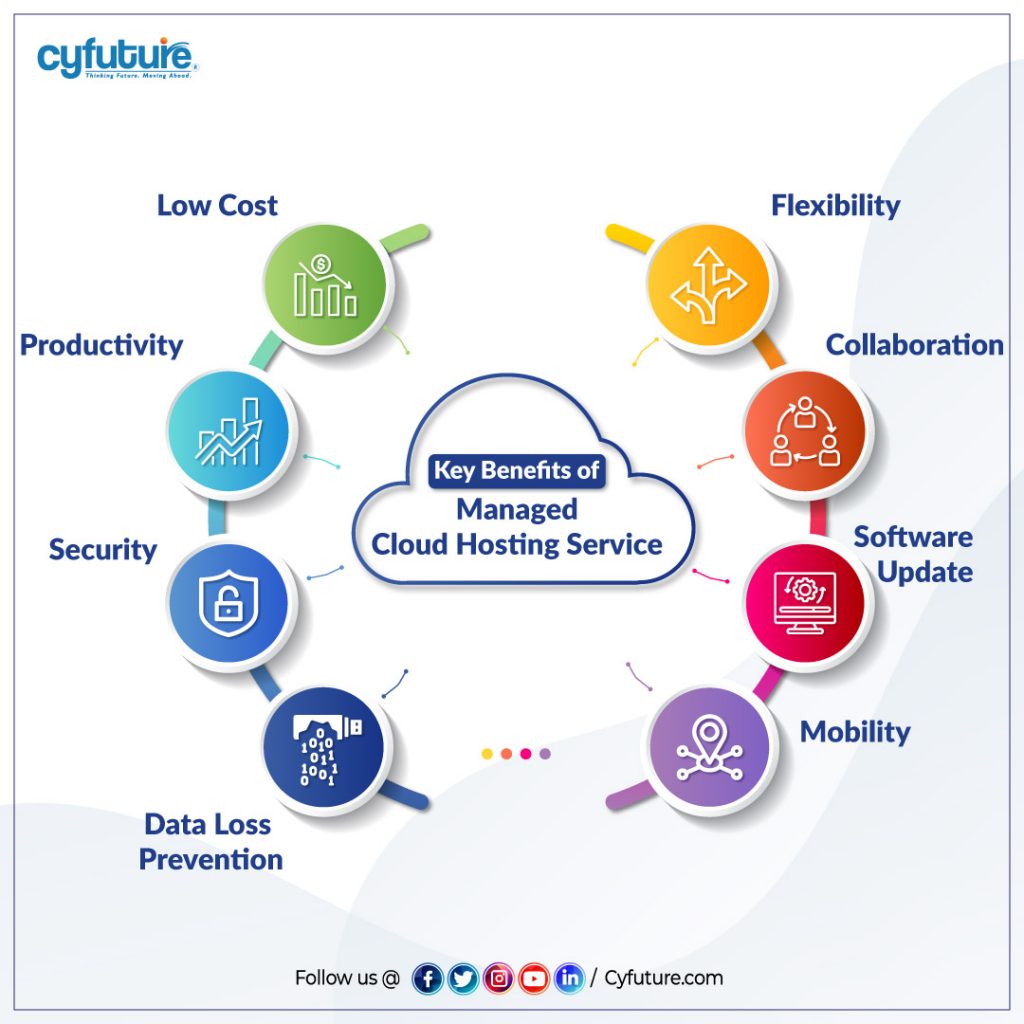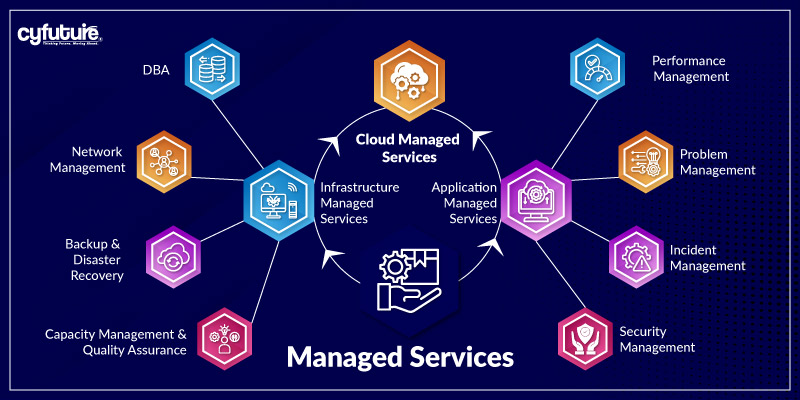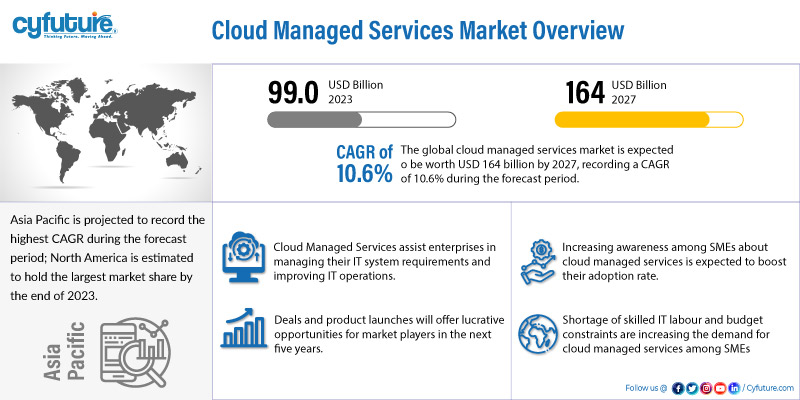Toggle navigation

While businesses are continuously seeking innovative ways to streamline operations and maximize efficiency, one remarkable solution that has gained tremendous traction is “managed cloud hosting service outsourcing.” This game-changing concept encompasses a strategic collaboration between organizations and specialized providers to optimize cloud infrastructure, unleashing an array of cost-saving benefits.
Managed cloud hosting service outsourcing refers to the practice of entrusting the management and maintenance of cloud hosting services to external experts, granting companies access to a wealth of technical prowess without the burden of handling it in-house. The allure of cloud hosting solutions has skyrocketed, with more and more businesses realizing the unparalleled scalability, flexibility, and security it offers. This surge in popularity has paved the way for a thriving ecosystem of managed cloud hosting service providers, catering to the diverse needs of enterprises across the globe. Delving into the heart of the matter, the cost-saving advantages of outsourcing managed cloud hosting services are nothing short of astounding. By offloading the intricate complexities of managing cloud infrastructure to adept professionals, businesses can substantially trim down operational expenditures. Not only does this eliminate the need for costly hardware and maintenance, but it also minimizes the requirement for an in-house IT team, leading to substantial payroll savings.
If you’re eager to unlock the full potential of managed cloud hosting service outsourcing and discover how it can revolutionize your business’s bottom line while supercharging its performance, read on. This blog will delve deeper into the undeniable facts and stats surrounding this revolutionary approach, leaving you equipped with the knowledge to propel your enterprise to new heights.

One concept stands out as a beacon of efficiency and innovation: managed cloud hosting service outsourcing. This transformative approach has garnered widespread attention for its ability to optimize cloud infrastructure while reducing costs and enhancing performance. Let’s delve deeper into the intricacies of managed cloud hosting and uncover its key benefits and suitability for various businesses.
Managed cloud hosting services entail entrusting the responsibility of managing and maintaining cloud infrastructure to external experts. These experts, equipped with specialized skills and industry insights, ensure seamless operations, efficient resource allocation, and robust security measures. By offloading the technical complexities to these professionals, companies can focus on their core competencies, enhancing productivity and paving the way for accelerated growth.
The advantages of managed cloud hosting are abundant. Firstly, it offers unparalleled scalability, allowing businesses to effortlessly adjust resources as demand fluctuates. This flexibility not only optimizes performance but also minimizes unnecessary expenses during periods of reduced usage. Moreover, managed cloud hosting ensures high availability, mitigating the risk of downtime and potential revenue loss. The round-the-clock monitoring and support provided by the service providers guarantee rapid issue resolution, maintaining a smooth user experience.
Furthermore, managed cloud hosting enhances data security through robust measures such as encryption, regular backups, and vulnerability assessments. This not only safeguards sensitive information but also ensures compliance with industry regulations. Additionally, the automatic software updates and maintenance performed by experts result in improved system performance and reliability.
The versatility of managed cloud hosting makes it beneficial for a wide range of businesses. Small and medium-sized enterprises (SMEs) can leverage its cost-effectiveness, avoiding hefty upfront investments in hardware and dedicated IT teams. Startups, on the other hand, can scale their operations without facing the technical burdens typically associated with rapid growth.
Even established enterprises can find value in managed cloud hosting as it empowers their internal IT teams to focus on strategic initiatives rather than routine maintenance tasks. Additionally, businesses dealing with sensitive data, such as those in healthcare or finance, can rest assured knowing their critical information is under the care of experienced professionals, minimizing the risk of data breaches.

The traditional in-house approach has long been a standard choice for many businesses. However, with the rapid advancements in cloud technology, the landscape is changing, and a new contender has emerged: managed cloud hosting service outsourcing. In this section, we will explore the cost factor of traditional in-house hosting, shedding light on its inherent challenges and the cost comparison between in-house and managed cloud hosting.
Traditional in-house hosting models involve setting up and maintaining servers and infrastructure on-premises. This approach provides businesses with a sense of control over their data and applications. However, it requires substantial upfront capital investment to procure hardware and software, as well as ongoing expenses to maintain and upgrade the infrastructure. Additionally, businesses must allocate valuable office space and resources to house and manage the servers, diverting focus from core activities.
Hidden costs and challenges are prevalent in the traditional in-house hosting model. Alongside the initial investment in hardware and software, businesses often face unpredictable expenses related to system failures, repairs, and upgrades. Furthermore, hiring and retaining skilled IT personnel to manage the infrastructure can prove to be a costly affair. Additionally, in-house hosting may lead to downtime during maintenance or in the event of hardware failures, resulting in potential revenue losses.
When comparing cost structures, managed cloud hosting service outsourcing emerges as a cost-effective alternative. Unlike the heavy upfront investment required in the traditional approach, managed cloud hosting operates on a pay-as-you-go model, where businesses only pay for the resources they use. This eliminates the need for overprovisioning and optimizes cost efficiency. Moreover, with external experts handling maintenance and support, businesses save on IT staffing costs.
Managed cloud hosting service outsourcing has emerged as a game-changing solution, offering remarkable benefits for enterprises of all sizes. One of the key advantages it presents is the reduction of capital expenditure, paving the way for cost-efficient and agile business practices. In this section, we will explore three crucial aspects that contribute to the significant capital expenditure reduction achieved through managed cloud hosting outsourcing.
One of the primary ways managed cloud hosting service outsourcing reduces capital expenditure is by eliminating the need for upfront hardware and software costs. In traditional hosting models, businesses are required to invest substantial amounts in procuring servers, networking equipment, and other essential infrastructure components. However, with managed cloud hosting, all these expenses are shifted to the service provider, as they own and maintain the hardware at their data centers. This allows businesses to redirect their capital towards strategic initiatives and growth opportunities, rather than being tied down by costly, depreciating assets.
The outsourcing of cloud hosting services also leads to a reduced need for in-house IT infrastructure and maintenance. Traditionally, businesses had to allocate resources and office space for housing servers and hiring IT personnel to manage and maintain the infrastructure. However, with managed cloud hosting, these responsibilities are transferred to the service provider, freeing up valuable resources and minimizing ongoing operational costs. The burden of hardware upgrades, software updates, and security measures is shifted to experienced professionals, ensuring optimal performance without the need for significant in-house investments.
Another notable advantage of managed cloud hosting is the ability to scale resources as needed without requiring significant upfront investment. In traditional hosting setups, businesses often had to overprovision resources to handle potential spikes in demand, leading to underutilized capacity during periods of low usage. With managed cloud hosting, companies can dynamically adjust their resources in response to changing requirements. This pay-as-you-go model allows for a more efficient allocation of resources and ensures that businesses only pay for the computing power and storage they actually use.

Managed cloud hosting service outsourcing continues to revolutionize the way businesses operate, not only by reducing capital expenditure but also by generating substantial operational cost savings. In this section, we will explore three key factors that contribute to the operational cost efficiencies achieved through managed cloud hosting.
One of the most significant contributors to operational cost savings is the decreased need for staffing and training expenses. In traditional in-house hosting models, businesses are required to build and maintain a skilled IT team to handle the complexities of managing and troubleshooting the infrastructure. However, with managed cloud hosting, the burden of hiring, training, and retaining such specialized personnel is shifted to the service provider. This leads to a notable reduction in HR-related costs, allowing businesses to optimize their budget and invest in other critical areas of the organization.
Managed cloud hosting service outsourcing enables businesses to achieve efficient use of resources, resulting in lower operational costs. With traditional hosting setups, companies often had to overprovision resources to handle peak demands, leading to wasteful spending on unused capacity during off-peak times. Managed cloud hosting providers, on the other hand, offer scalable solutions, allowing businesses to dynamically adjust resources based on real-time requirements. This pay-as-you-go approach ensures optimal resource utilization, eliminating unnecessary expenses and enhancing overall cost-effectiveness.
By leveraging the expertise of specialized cloud service providers, businesses can tap into a wealth of knowledge and experience without the need to build such capabilities in-house. Managed cloud hosting providers are equipped with dedicated teams of experts proficient in handling cloud infrastructure, security, and performance optimization. This proficiency not only reduces the risk of errors and downtime but also ensures that businesses can focus on their core competencies while entrusting the technical intricacies to seasoned professionals.
One significant advantage lies in the enhanced cost predictability and management it offers. In this section, we will delve into three key aspects that contribute to this enhanced predictability, empowering businesses to make informed financial decisions while leveraging the full potential of managed cloud hosting.
Managed cloud hosting service outsourcing provides businesses with predictable monthly pricing and billing models. Unlike traditional in-house hosting, where operational costs can be subject to fluctuations due to unexpected hardware failures or sudden resource demands, managed cloud hosting offers a consistent and transparent pricing structure. This predictability enables businesses to accurately forecast their monthly expenses, ensuring better financial planning and budgeting.
By opting for managed cloud hosting, businesses can avoid unexpected expenses and budget overruns. The burden of handling hardware failures, software updates, and security breaches lies with the service provider, reducing the risk of unforeseen costs. Moreover, the pay-as-you-go model ensures that businesses only pay for the resources they utilize, eliminating the need for overprovisioning and wasteful spending.
Managed cloud hosting service outsourcing offers flexibility in choosing service plans that match specific business requirements and budget constraints. Businesses can tailor their hosting solutions to scale resources as needed, aligning with fluctuating demands and avoiding unnecessary expenses during periods of low usage. This adaptability empowers organizations to optimize cost management while ensuring their infrastructure remains agile and responsive to evolving business needs.
In an era where data breaches and cyber threats loom large, managed cloud hosting service outsourcing emerges as a robust solution that not only bolsters security and compliance but also presents significant cost benefits. In this section, we will explore three critical aspects that contribute to these cost advantages, ensuring businesses can operate with confidence in a secure and compliant environment.
By opting for managed cloud hosting service outsourcing, businesses can effectively avoid financial losses resulting from security breaches. The service providers bring their specialized expertise in security measures, implementing robust firewalls, encryption protocols, and continuous monitoring to safeguard against cyber threats. This proactive approach reduces the risk of data breaches and potential financial repercussions, such as customer compensation, legal fees, and damage to the brand’s reputation.
Managed cloud hosting also minimizes costs associated with regulatory non-compliance. Compliance with industry-specific regulations and data protection laws is paramount for businesses to avoid hefty fines and legal penalties. With managed service providers taking charge of compliance management, including data protection standards like GDPR or HIPAA, businesses can rest assured that their operations align with the necessary regulations, mitigating the risk of non-compliance-related expenses.
The cost-effectiveness of outsourcing security and compliance management cannot be overstated. Building an in-house team capable of handling the intricacies of cybersecurity and regulatory compliance requires substantial investment in hiring, training, and ongoing skill development. Managed cloud hosting service outsourcing allows businesses to access a dedicated team of experts without incurring these high expenses. The predictable and transparent pricing model of managed cloud hosting further ensures that businesses can budget effectively and allocate resources wisely.
Managed cloud hosting service outsourcing presents a robust solution that not only reduces downtime but also generates significant cost savings by ensuring higher uptime and seamless business continuity. In this section, we will explore three crucial aspects that highlight the impact of downtime, the effectiveness of managed cloud hosting in improving uptime, and the cost savings derived from enhanced business continuity.
Downtime can have a severe impact on revenue and productivity. When critical systems and applications are unavailable, businesses may lose out on potential sales, suffer customer dissatisfaction, and incur financial losses. Moreover, employees’ productivity may take a hit, leading to wasted time and reduced efficiency. The financial implications of downtime can be substantial, making it crucial for businesses to implement measures that minimize such disruptions.
Managed cloud hosting excels in ensuring higher uptime and availability. With redundant infrastructure and failover mechanisms, service providers can maintain continuous operations even during hardware failures or maintenance activities. Additionally, managed cloud hosting includes round-the-clock monitoring and proactive issue resolution, minimizing the risk of extended downtime. This enhanced uptime allows businesses to maintain seamless operations, boost productivity, and retain customer confidence.
The cost savings from improved business continuity can be significant. By reducing downtime and minimizing disruptions, businesses avoid the financial losses associated with revenue downtime and productivity losses. Additionally, managed cloud hosting’s proactive approach to maintenance and issue resolution prevents costly emergency fixes. Moreover, the ability to quickly recover from potential disasters or data breaches ensures a faster return to normal operations, further reducing the financial impact of unforeseen events.
Managed cloud hosting service outsourcing emerges as a transformative solution that not only enhances application and website performance but also optimizes resource usage, leading to reduced wastage and lowering expenses. In this section, we will explore three crucial aspects that underscore the performance optimization and cost efficiency achieved through managed cloud hosting.
One of the primary benefits of managed cloud hosting service outsourcing is the enhanced performance of applications and websites. Service providers employ cutting-edge technologies and infrastructure to ensure faster loading times, reduced latency, and seamless user experiences. With data centers in India, businesses can cater to their global audience with minimized delays. This heightened performance not only boosts user satisfaction but also positively impacts conversion rates and overall revenue generation.
Managed cloud hosting facilitates resource optimization, eliminating wastage and inefficiencies that often arise with traditional hosting models. The pay-as-you-go approach allows businesses to scale resources dynamically, ensuring they only pay for the computing power and storage they use. This optimization of resources not only reduces costs but also ensures that businesses have the necessary capacity to handle fluctuating demands without overspending on underutilized resources.
Lowering expenses through optimized cloud architecture is a significant advantage of managed cloud hosting service outsourcing. By entrusting cloud management to specialized providers, businesses can avoid the expenses associated with building and maintaining in-house infrastructure. The service providers are equipped with a team of experts who design and manage the most efficient and cost-effective cloud architecture, ensuring businesses achieve the best possible value for their investment.
Managed cloud hosting service outsourcing offers a transformative solution that enables businesses to redirect resources from IT maintenance to core business functions, leading to increased productivity and revenue generation. This section will explore three critical aspects that highlight the impact of focusing on core activities through managed cloud hosting service outsourcing and its overall contribution to cost savings and business growth.
By entrusting the management and maintenance of cloud hosting to specialized service providers, businesses can divert valuable resources from IT maintenance to core business functions. The burden of handling hardware upgrades, software updates, and security measures is shifted from the internal IT team to external experts. This allows businesses to allocate their skilled workforce and financial resources to strategic initiatives and projects that directly contribute to their core objectives, fostering efficiency and innovation.
Focusing on core activities through managed cloud hosting service outsourcing leads to increased productivity and revenue generation. With reduced downtime and improved application performance, businesses can operate seamlessly, resulting in higher employee productivity. Additionally, the enhanced user experience and faster loading times lead to increased customer satisfaction and loyalty, ultimately driving revenue growth.
The overall impact of focusing on core activities extends to cost savings and business growth. By optimizing resource allocation and boosting productivity, managed cloud hosting enables businesses to operate more efficiently, reducing operational expenses. The cost savings derived from outsourcing cloud management and maintenance can be invested in strategic initiatives, expansion plans, or research and development, fueling business growth and competitiveness in the market.

The adoption of managed cloud hosting service outsourcing is a strategic decision that goes beyond mere cost reduction. It is crucial for businesses to carefully plan and choose the right managed cloud hosting provider to unlock its full potential and reap its numerous benefits.
Strategic planning plays a vital role when selecting a managed cloud hosting provider. Businesses must assess their unique requirements and objectives to find a provider that aligns with their goals. Factors such as security measures, compliance expertise, scalability, and performance optimization capabilities should be carefully evaluated. Additionally, considering the provider’s track record, reputation, and customer reviews can provide valuable insights into their reliability and service quality. A well-thought-out decision in choosing a managed cloud hosting provider ensures a seamless transition, effective resource management, and robust support for the business’s long-term growth.
Managed cloud hosting emerges as a catalyst for business growth and success. By entrusting cloud management to specialized providers, businesses can focus on core activities, driving productivity and innovation. The enhanced application and website performance leads to higher customer satisfaction and increased revenue generation. Moreover, the optimized resource utilization and cost savings enable businesses to invest in strategic initiatives, fostering growth and expansion. With reliable uptime, improved security, and regulatory compliance, managed cloud hosting builds a solid foundation for businesses to thrive in the dynamic digital landscape.
The strategic adoption of managed cloud hosting service outsourcing empowers businesses to navigate the digital realm with confidence. By emphasizing the role of managed cloud hosting in fostering business growth and success, enterprises can leverage its benefits to achieve greater efficiency, cost-effectiveness, and competitiveness. Embracing managed cloud hosting as a strategic partner enables businesses to stay ahead in the ever-evolving market and unlock their full potential in the pursuit of sustainable success.